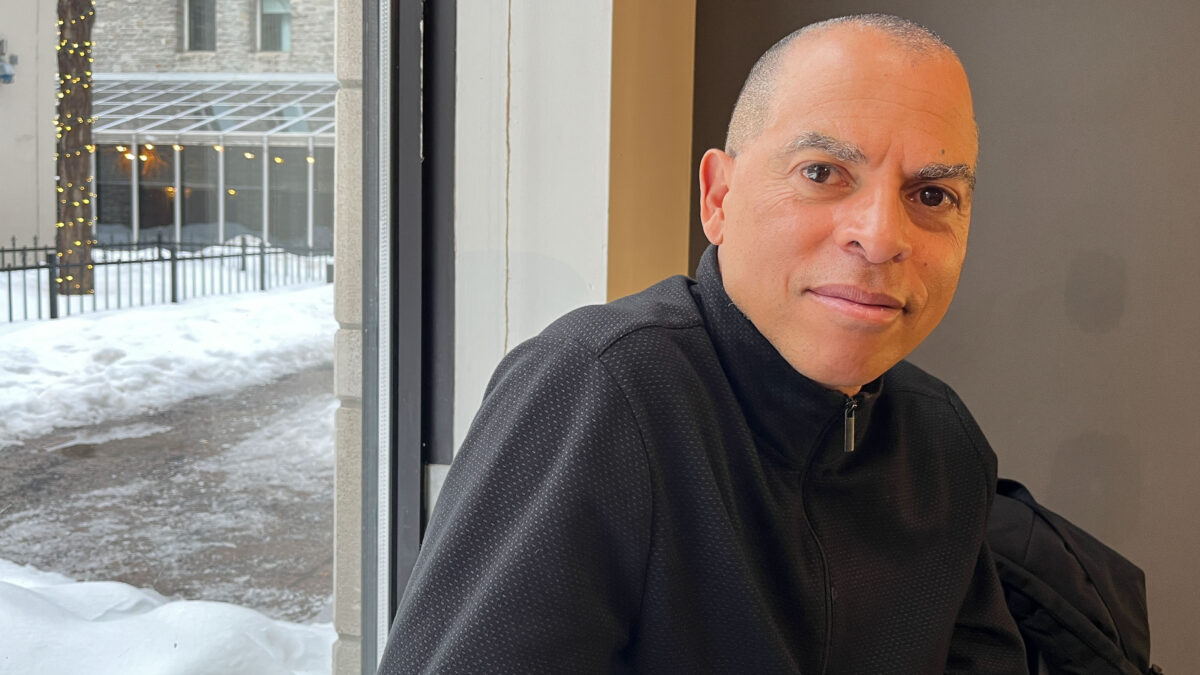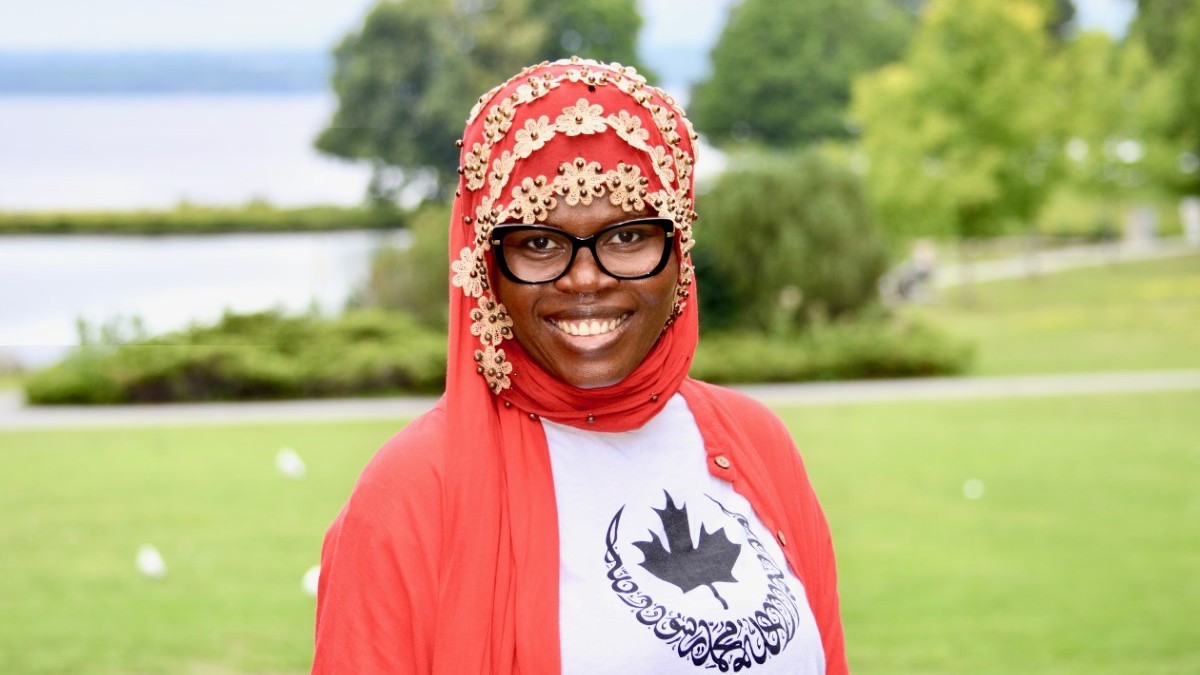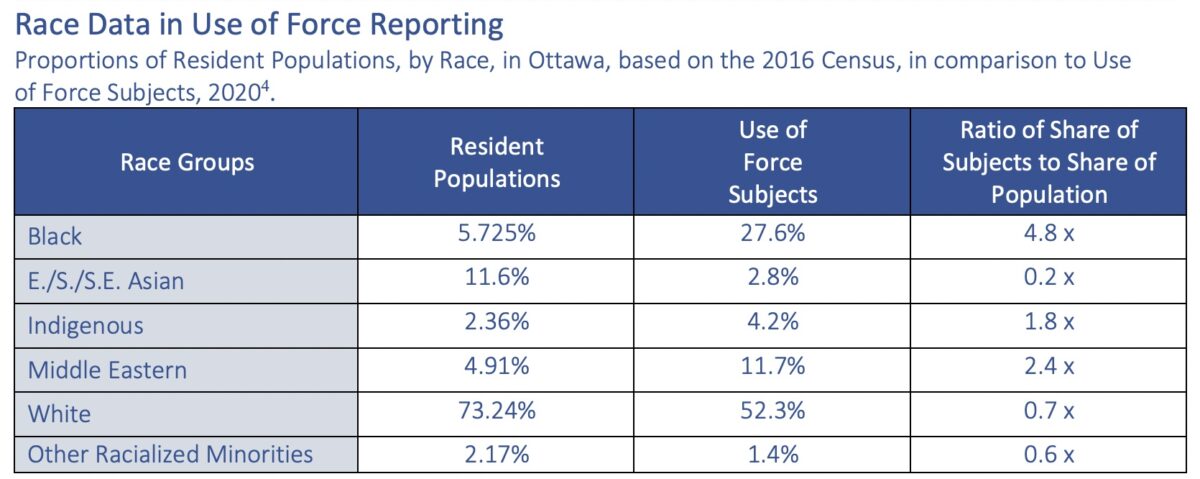While the Ottawa Police Service is highlighting the diversity of its newest class of recruits, some advocates fear broader representation in law enforcement won’t necessarily lead to positive changes for racialized community members.
The Ottawa force’s newest class has 36 recruits speaking 14 languages including Tamil, Sinhalese, Hindi, Marathi and Kurdish, the OPS stated in a Feb. 27 news release.
“This linguistic diversity will help the OPS better serve Ottawa’s growing and diverse population,” police said.
Robin Browne, founder of 613-819 Black Hub — a group that works to combat anti-Black racism in the area — isn’t convinced.

“The Ottawa police and their supporters will say that this is going to change things,” Browne said. “They’re still disproportionately using force against Black people and Middle Eastern people.
“Whether it’s diverse officers, or more training or whatever the reform is — it’s not working.”
Over a 10-year period, racial disparities in traffic stops worsened for some Black and Middle Eastern drivers, according to research released by Ottawa police in 2024.
“Young male drivers aged 16-24 have experienced the highest levels of disproportionality, although there have been significant reductions in these disproportionalities since 2013,” the report stated. “Drivers perceived to be Middle Eastern and Black in this age category are being stopped significantly less than they were ten years ago, but they are still being stopped more than would be expected based on corresponding city population data.”
The report also noted that “racial disproportionalities have increased over the 10-year period for drivers perceived to be Black and Middle Eastern aged 25-54.”
Sahada Alolo, co-chair of the Community Equity Council that works with the OPS to improve police relationships with racialized communities, said last June of the 2024 traffic report: “The findings are discouraging and may erode trust in the community. Nonetheless, we are on a journey of change. We will continue working with police and community leaders to address these disproportionalities by developing concrete actions that enhance community safety and build trust.”

Ottawa police disproportionately used force against Black and Middle Eastern people in 2020, according to a 2024 Ottawa Police Service Board report that examined the OPS’s “DRIVE(2)” initiative, which stands for “Diversity, Respect, Inclusion, Values, Equity and Engagement.”
“Individuals perceived to be Black by officers, were involved in Use of Force incidents 4.8 times more than would be expected (118/427 subjects were perceived as Black),” the report stated. “Individuals perceived to be Middle Eastern were involved in Use of Force incidents 2.4 times more than would be expected (50/427 subjects were perceived as Middle Eastern).”
“They’re causing a lot of harm every single day,” Browne said. “The whole problem is with policing itself.”
Tom Ledgley of Horizon Ottawa echoed Browne’s concerns.
“Measures like these mostly serve as (public relations) for the OPS and don’t do much to substantially improve relations with marginalized communities,” Ledgley said.

“Due to the pattern of misconduct and discrimination from the OPS, many in these communities would prefer to minimize interactions with law enforcement.”
Ledgley says linguistic diversity can be an asset in de-escalating situations, but he said he believes work can be done even when a language barrier exists.
“I have not personally seen this on a list of things that activists … are asking for from police,” Ledgley added. “I don’t know if that’s something as easy as, ‘We speak your language, so we’re going to feel more connected.”
Asked to comment on advocates’ concerns that a more diverse workforce won’t necessarily ensure systemic change, officials responded: “The linguistic and cultural diversity of this latest class is reflective of the makeup of the City of Ottawa. … As the City is increasingly diversifying, the Ottawa Police Service is striving to meet the representation within the Service.”
The service is working with the Community Equity Council to “educate and attract representation from all communities in the City,” police added.
“Representation is the first step to changing culture in policing,” police added. “The service is continually re-assessing and continuing conversations, both internally and externally, to effectively serve (the) community.”
“It’s not working,” Browne said. “What happens is that all these diverse officers don’t change the police force — the police force changes them.”




